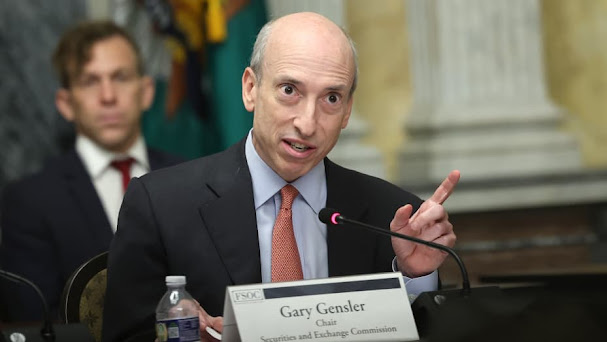Gary Gensler, We Won’t Miss You (At All)
:format(webp)/cloudfront-us-east-1.images.arcpublishing.com/coindesk/ZTQ3DIZC6BCGLO6SQEXZV7RQGM.jpg)
Gary Gensler, the chair of the U.S. Securities and Exchange Commission (SEC), spoke at NYU School of Law, and his remarks left no doubt about his stance on cryptocurrency. His views seemed to mark a departure from his typically cautious approach. Instead, they painted a bleak picture for the future of the crypto industry.
Normally reserved in his responses, Gensler made bold and sweeping statements, drawing some heavy conclusions. He claimed that major cryptocurrencies like Bitcoin and Ethereum probably wouldn’t be used for everyday payments anytime soon. He then added, “I used to teach this at MIT, and these debates go all the way back to Plato and Aristotle. This is 3,000 years of history. Great nations, hundreds of states, and we usually have just one currency per economic region. Even bimetallism is rare."
In simpler terms, Gensler suggested that governments have always controlled currency and that having a single, state-issued currency is better for an economy. While there might be some truth to this, it’s an interesting take from the head of the SEC, someone who should ideally be thinking ahead and considering new possibilities. His perspective seemed stuck in the past, failing to acknowledge the technological advances that have radically transformed the financial world.
On the biggest questions — whether tokens are securities and if token sales qualify as investment contracts — Gensler wasn’t offering any forward-thinking solutions. Instead, he leaned on the Howey Test, a legal standard from 1940, as a sufficient way to determine what counts as an investment contract. He didn’t show any interest in updating regulations to reflect new technology and market realities.
He did make one thing clear: For anyone hoping to build a cryptocurrency project in the U.S., Gensler’s advice was to stick to laws made decades ago, with no sign of adapting them for the future. His reluctance to consider new approaches or encourage innovation left little hope for those working in the crypto space.





.jpg)

0 Comments